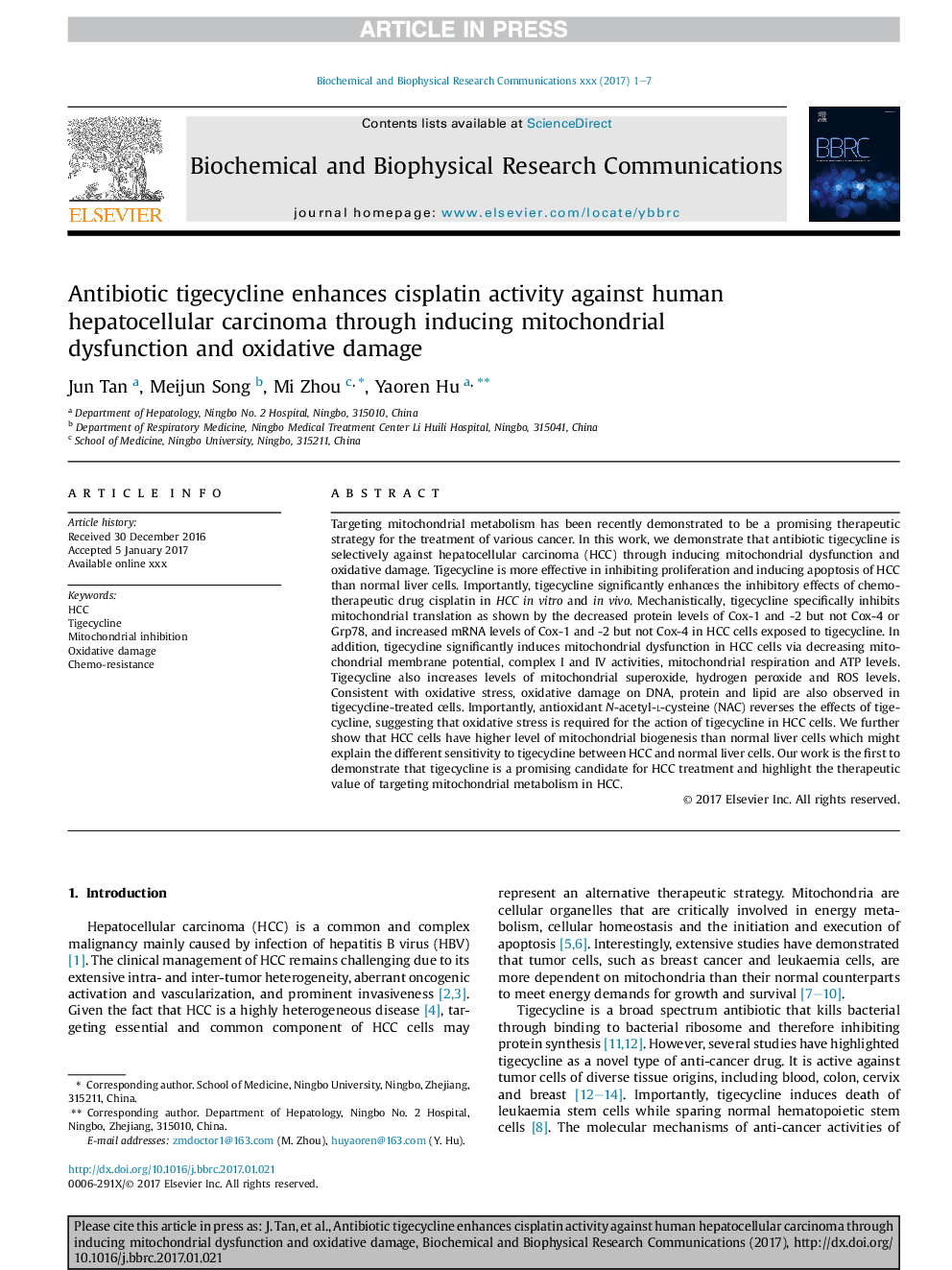| Article ID | Journal | Published Year | Pages | File Type |
|---|---|---|---|---|
| 5505549 | Biochemical and Biophysical Research Communications | 2017 | 7 Pages |
Abstract
Targeting mitochondrial metabolism has been recently demonstrated to be a promising therapeutic strategy for the treatment of various cancer. In this work, we demonstrate that antibiotic tigecycline is selectively against hepatocellular carcinoma (HCC) through inducing mitochondrial dysfunction and oxidative damage. Tigecycline is more effective in inhibiting proliferation and inducing apoptosis of HCC than normal liver cells. Importantly, tigecycline significantly enhances the inhibitory effects of chemotherapeutic drug cisplatin in HCC in vitro and in vivo. Mechanistically, tigecycline specifically inhibits mitochondrial translation as shown by the decreased protein levels of Cox-1 and -2 but not Cox-4 or Grp78, and increased mRNA levels of Cox-1 and -2 but not Cox-4 in HCC cells exposed to tigecycline. In addition, tigecycline significantly induces mitochondrial dysfunction in HCC cells via decreasing mitochondrial membrane potential, complex I and IV activities, mitochondrial respiration and ATP levels. Tigecycline also increases levels of mitochondrial superoxide, hydrogen peroxide and ROS levels. Consistent with oxidative stress, oxidative damage on DNA, protein and lipid are also observed in tigecycline-treated cells. Importantly, antioxidant N-acetyl-l-cysteine (NAC) reverses the effects of tigecycline, suggesting that oxidative stress is required for the action of tigecycline in HCC cells. We further show that HCC cells have higher level of mitochondrial biogenesis than normal liver cells which might explain the different sensitivity to tigecycline between HCC and normal liver cells. Our work is the first to demonstrate that tigecycline is a promising candidate for HCC treatment and highlight the therapeutic value of targeting mitochondrial metabolism in HCC.
Related Topics
Life Sciences
Biochemistry, Genetics and Molecular Biology
Biochemistry
Authors
Jun Tan, Meijun Song, Mi Zhou, Yaoren Hu,
